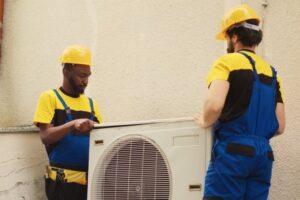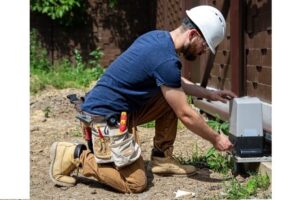Ensuring your family’s safety should be your top priority. The best way to do that is to identify the most common dangers, and take proactive action to protect yourself against them. And on the top of the list as one of the leading dangers at home is house fires.
House fires cannot only be financially devastating but they can lead to injury and even death. The good news is that most house fires are entirely preventable with a little bit of foresight. By knowing the right preventative measures to take, you can increase your overall awareness, and protect your family from fires. Here are some of the most common causes of house fires and what you can do to avoid them.

Table of Contents
Electrical Fires
At the top of the list as one of the leading causes of house fires is electrical malfunctions. Unfortunately, these occur when homeowners overload their circuits with too many plugs, consequently ending in flames. Electrical fires can also happen as a cause of faulty wiring or outdated electrical systems. This is why, homeowners must avoid doing any sort of electrical maintenance on their own. Unless you’re a licensed professional electrician, you’re better off leaving this kind of work to someone who is properly skilled.
As a final precaution, you should consider unplugging all of your appliances when not in use, as a power surge could lead to a spark and results in a full-fledged fire. A little precaution goes a long way when avoiding disasters like house fires. If you’re noticing some electrical problems at home, it’s best to get in touch with emergency electrical services immediately to avoid further hazards.
Cooking Accidents
Although the kitchen is a place we associate with joyful family gatherings, it can also be an incredibly dangerous place. In most cases it’s a result of unattended cooking. All it takes is looking away from an open fire for a few minutes and you could find your house in flames.
To avoid cooking accidents, never leave flammable objects near your stove, and of course, never leave what you’re cooking unattended. Clean up any grease buildup around your compliances and on your exhaust hoods to avoid grease fires. Lastly, consider keeping a fire extinguisher in your kitchen to extinguish a fire as quickly as possible.
Heaters
Even though many appliances come with instruction manuals, more often than not people don’t read them. Heater fires are a common issue because people often use them outside of their intended use— if only they had read the manual! In other words, never use a space heater to dry your socks, or your fireplace to dry your jeans. Any heating appliance should be kept far away from flammable materials. Above all, never leave heating appliances on when you’re absent.
The same goes for leaving them on when you sleep. Leaving a space heater on while sleeping could be extremely dangerous, so instead, turn it off and bundle yourself up with blankets instead.
Another critical factor in preventing house fires is ensuring that your home’s electrical system is up to date and properly maintained. Faulty wiring and outdated electrical panels can pose significant fire hazards. Regular inspections by professionals, such as Sarkinen Electrical contractors, can help identify potential issues before they become dangerous. These experts can assess your home’s electrical system, recommend necessary upgrades, and ensure that everything is in compliance with current safety standards. By taking these proactive steps, homeowners can significantly reduce the risk of electrical fires and protect their property and loved ones from harm.
In addition to understanding the common causes of house fires, it’s crucial to be aware of local resources that can assist in fire prevention and safety. Many communities offer fire safety programs and inspections to help residents identify potential hazards in their homes. Engaging with these services can significantly reduce the risk of fire-related incidents. For those interested in learning more about local fire safety initiatives and resources, you can Read More to discover valuable information and support available in your area. Taking proactive steps and staying informed are key components in safeguarding your home and loved ones from the devastating effects of house fires.




